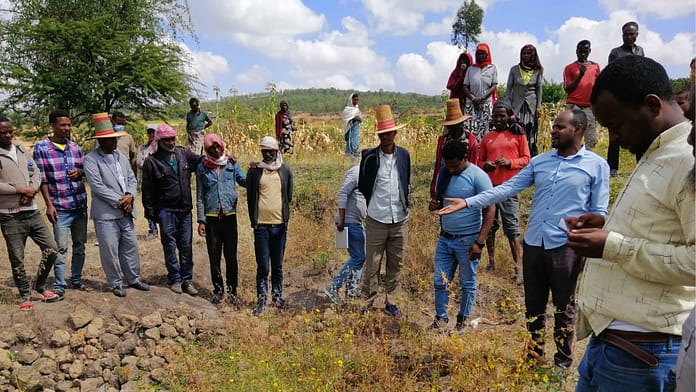Reducing land degradation and carbon loss risk in Ethiopia’s soils
The project will develop and apply frameworks for the analysis of equity within the case study areas to design specific interventions to train and provide access to enclosures to selected eligible landless youth and women to enable them to undertake new productive activities in beekeeping or livestock management; demonstrate and train local farmers in simple measures to address gully formation through a range of participatory, communication, and survey methods. The project will explore the impact of the interventions on the participants in terms of their attitudes, changes in behavior and livelihoods, the influence of process characteristics, power relationships and communication practices on people’s responses to these interventions, what worked / what didn’t, and how this compared to expectations, and the impact of the changing knowledge and experience of the interventions on wider attitudes and community preferences for local natural resource governance.
University of Aberdeen
Wolde Bori
ecosystem, hydrological modeling, Integrated Water Resource Management, Land tenure, River Basin Management, watershed management
Equitable Resilience: Reducing land degradation and carbon loss risk from Ethiopia's soils to strengthen local capacity and resilience. (D-0286)



